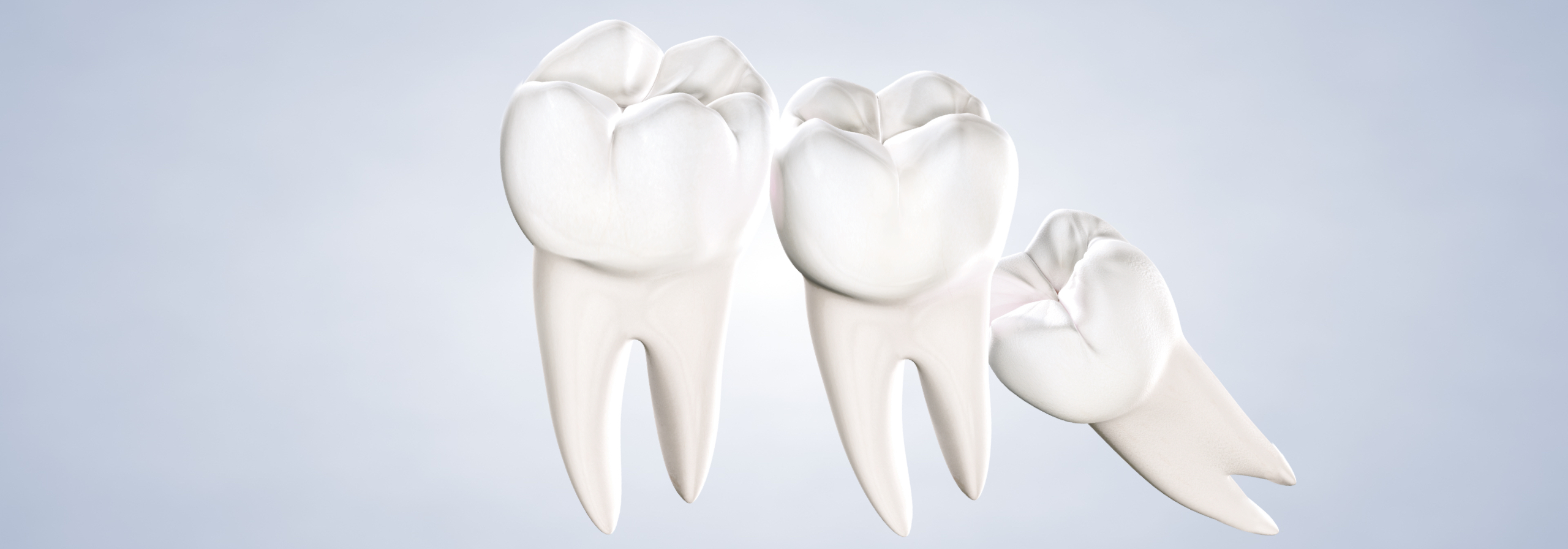
Most dental professionals recommend having your wisdom teeth extracted early. Wisdom teeth, commonly known as third molars, are the last teeth to develop and emerge. The average mouth does not have enough room for an extra set of molars and if left untreated, wisdom teeth may contribute to numerous health issues.
Here are the top 10 reasons to have your wisdom teeth removed:
10. Unnecessary for Oral Function
You already have first and second molars, which are responsible for chewing and grinding food. An additional set of molars is not needed to maintain proper oral function.9. Prevent Infection
Because of their unpredictable eruption path (which sometimes leads to partial eruption), wisdom teeth are difficult to keep clean. The presence of third molars leaves you more susceptible to oral infections, which can spread to other teeth and gums. Infections from wisdom teeth increase the risk of other health issues, such as cardiovascular disease, diabetes, and stroke.8. Treat Impacted Wisdom Teeth
If a wisdom tooth becomes trapped beneath the gum tissue and cannot erupt into the dental arch, it is considered to be impacted. Impacted wisdom teeth develop at an angle and can grow into and damage adjacent teeth. In most cases, impacted wisdom teeth will not naturally erupt and must be surgically removed.7. Prevent Cysts and Tumors
Partially erupted wisdom teeth make it easy for food and bacteria to become trapped, causing infection. Cysts and tumors can form around these teeth, which can become painful and further inhibit your ability to properly brush and floss your teeth.6. Maintain Good Oral Hygiene
When third molars are removed, you can maintain a healthy oral hygiene routine without having to work around these large teeth. Without these large molars present, you can carry on normally without having to worry about if your wisdom teeth are threatening your oral health.5. Alleviate and Prevent Pain
The force of wisdom teeth trying to squeeze into the dental arch can cause a lot of pain or pressure in the back of the mouth. This can cause headaches, facial pain, or make it hard to chew. These teeth have large, unpredictable roots that can grow into facial nerves, further increasing discomfort.4. Receding Gum Tissue and Jaw Deterioration
Untreated infection can lead to receding gums and damage nearby structures, such as the jaw bone or other teeth. Receding gum tissues and deterioration of the jaw bone requires extensive procedures in the future to rebuild the facial structure and restore jaw function.3. Dental Overcrowding
The average mouth can only house 28 teeth, leaving little space for wisdom teeth to erupt. Overcrowding can cause your teeth to become misaligned and lead to the development of bite problems.2. Problems Increase With Age
As you age, the wisdom teeth will become more embedded into the jaw bone. This can lead to more complex surgery down the road when removing them. It’s recommended that these teeth are removed during adolescence, before the teeth have fully developed. However, wisdom teeth can be extracted at any age.1. Peace of Mind
When you have wisdom teeth extracted early, you don’t have to worry about the chance for complications. To prevent and avoid oral health issues associated with third molars for you and your family, see an oral surgeon for the management of wisdom teeth.Have Wisdom Teeth Removed By an Oral Surgeon
If it’s time for you or your child to have wisdom teeth extracted, see an oral and maxillofacial surgeon. They are the experts in wisdom teeth removal, ensuring comfortable surgical experiences and optimal outcomes. Oral surgeons have undergone specialized training to administer all forms of anesthesia and are the most qualified dental professionals to extract wisdom teeth.